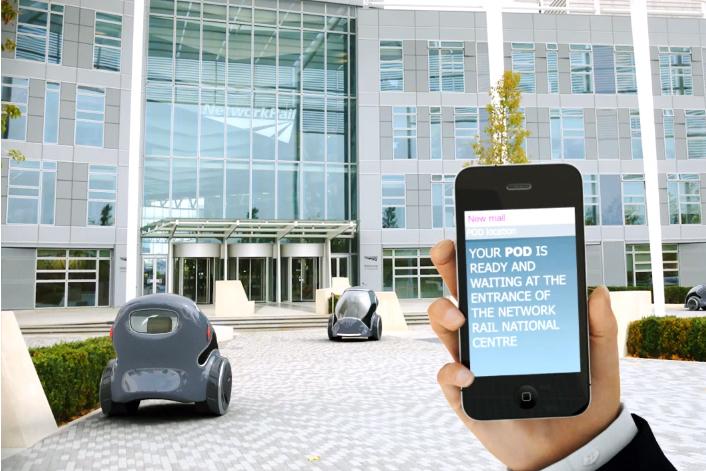
The people of Milton Keynes, a town about 50 miles north of London, could soon be hopping into driverless cars to travel to their destination, with the UK government on Thursday announcing plans to introduce a fleet of the futuristic electric-powered pods to the town in 2015.
The vehicles, which passengers will be able to book using a smartphone app, can each carry two people and come equipped with touchscreens allowing users to browse the Web, check emails, and play games during their journey.
On-board sensors will prevent the three-wheel cars running into anything unexpected, while specially built pathways mean the diminutive pods won’t have to run the risk of being made even more diminutive via a nasty accident on the town’s busy roads. However, with a top speed of 12 mph, passengers shouldn’t expect to get anywhere fast.
The specific routes and journey costs are still being worked out, though it’s likely the first cars will travel people between the rail station and shopping area, which are about a mile apart.

Twenty of the vehicles should be in operation by 2015, with plans for another 80 by 2017. If the rollout proves successful, it could be taken to other towns and cities across the country. Engineering firm Arup is working with Oxford and Cambridge universities to develop the pods.
London’s Heathrow Airport already uses similar driverless vehicles, carrying around 800 passengers between terminals each day.
The £1.5 million ($2.4 million) initiative is part of a government scheme worth £75 million ($120 million) designed to encourage firms to develop low-carbon technologies.
“By 2050, very few – if any – new cars will be powered solely by the traditional internal combustion engines, so it is important that the UK car industry is at the cutting edge of low-carbon technologies,” the UK’s business secretary Vince Cable said.
“Driverless cars are another invention that has the potential to generate the kind of high-skilled jobs we want Britain to be famous for, as well as cutting congestion and pollution and improving road safety.”
While Google has been making steady progress with its driverless-car project in the US, a team at the UK’s Oxford University is also working on a driverless vehicle called RobotCar.
The modified Nissan Leaf features a low-cost autonomous system which is operated using a trunk-based computer that communicates with the driver via an iPad. The system includes on-board sensors to help detect and avoid obstacles and uses small cameras and lasers to memorize journeys.
Below: Video about the Milton Keynes initiative (without audio).


